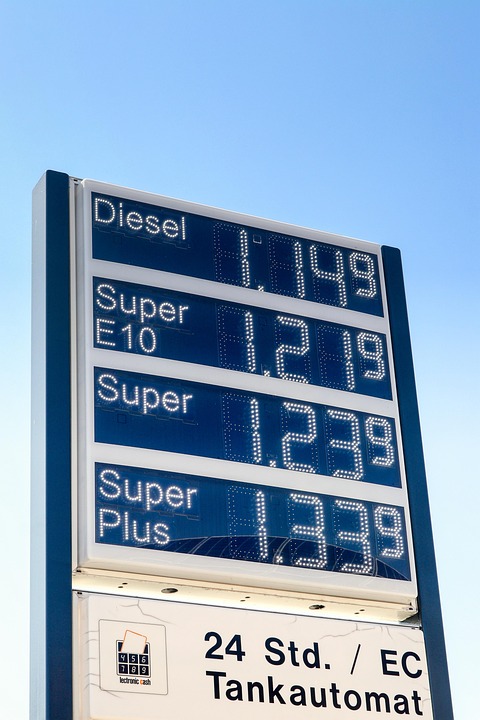Understanding Torque and Horsepower: Diesel vs. Petrol as Performance Fuels
When it comes to performance fuels, the debate between diesel and petrol is ongoing, with enthusiasts passionately defending their favorite. At the heart of this rivalry lies the intricate relationship between torque and horsepower—two crucial metrics that define a vehicle’s performance. In this article, we delve deep into these concepts, examining how diesel and petrol engines differ and which one reigns supreme in terms of performance.
What Are Torque and Horsepower?
Before we dive into the comparisons between diesel and petrol, it’s vital to understand what torque and horsepower actually represent.
Torque Explained
Torque is a measure of rotational force. In automotive terms, it indicates how much twisting power an engine can deliver. This force is what gets your car moving from a standstill and is particularly important for tasks like towing and hauling. The higher the torque, the better the vehicle can handle heavy loads.
Horsepower Explained
Horsepower, on the other hand, measures how quickly work is done. It combines torque with engine speed (RPM) and essentially signifies the engine’s ability to maintain speed and accelerate. Higher horsepower values allow for quicker speeds and improved performance on the highway.
The Equation
The relationship between the two can be succinctly summarized with this equation:
Horsepower = (Torque × RPM) / 5252
This equation illustrates how torque and RPM work together to produce horsepower. Higher torque at lower RPM can provide excellent acceleration, while high RPM can significantly boost horsepower.
Diesel Engines: Torque Kings
Diesel engines are famous for their robust torque output. Here’s why diesel is often chosen for heavy-duty applications:
- Higher Compression Ratios: Diesel engines operate on higher compression ratios than petrol engines, resulting in greater efficiency and torque.
- Low-End Torque: Diesel engines excel at low-end torque, making them perfect for towing and driving heavy loads.
- Fuel Efficiency: Diesel fuel has a higher energy density, enabling diesel engines to deliver impressive mileage and power without sacrificing performance.
Real-World Application
For example, a modern diesel pickup truck may produce over 900 lb-ft of torque, allowing it to tow trailers or haul heavy cargo with ease. This characteristic makes diesel engines the preferred choice in the commercial sector, particularly among trucks and heavy machinery.
Petrol Engines: The Speed Machines
While diesel engines shine in torque performance, petrol engines are renowned for their horsepower capabilities:
- Higher RPM Range: Petrol engines typically rev higher than diesel engines, allowing them to generate more horsepower.
- Smoother Acceleration: They offer a more dynamic driving experience, particularly in sports cars where speed and power delivery are critical.
- Lighter and More Compact: Petrol engines tend to be lighter than their diesel counterparts, contributing to better handling and agility.
Real-World Application
For example, performance-oriented petrol sports cars can easily produce upwards of 500 horsepower, enabling rapid acceleration and exhilarating driving dynamics. The ability to reach high RPMs allows these vehicles to excel in racing conditions.
Diesel vs. Petrol: A Performance Showdown
When deciding between diesel and petrol engines for performance, it ultimately boils down to what you’re looking for in a vehicle. Here’s a closer look at how each fuel type stacks up against the other:
Performance Metrics
-
Torque:
- Diesel: Exceptional torque, particularly at low RPMs, making it ideal for towing.
- Petrol: Generally lower torque compared to diesel but can provide a thrilling experience at higher RPMs.
-
Horsepower:
- Diesel: Lower peak horsepower limits but thrives in efficiency and longevity.
- Petrol: Higher horsepower ratings, shining in speed-focused scenarios.
-
Fuel Efficiency:
- Diesel: Better fuel economy due to denser fuel and efficient combustion.
- Petrol: Typically less fuel-efficient, leading to higher operational costs.
- Maintenance and Longevity:
- Diesel: Often requires more routine maintenance but can last longer with proper care.
- Petrol: Generally has lower maintenance costs and can be more reliable for casual driving.
Conclusion: Choosing the Right Fuel for You
In the battle of diesel vs. petrol, the choice depends entirely on the intended use of the vehicle. Diesel is suited for those who need torque for towing and hauling heavy loads, while petrol is the go-to for speed enthusiasts seeking high horsepower and rapid acceleration.
If you’re considering a new vehicle, think about your driving habits and requirements. Explore various models to find the right balance of torque and horsepower that meets your needs. Both diesel and petrol have distinct advantages and capabilities, making them valuable options in the automotive world.
Call to Action
Interested in learning more about performance fuels and what’s best for your driving style? Explore our in-depth articles on automotive technologies and trends at Buzzo.live!


